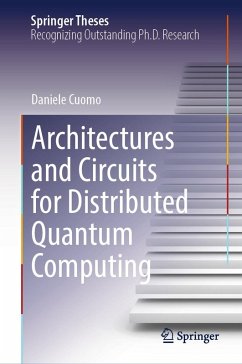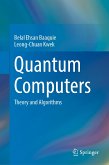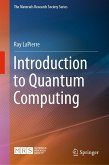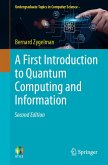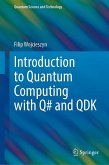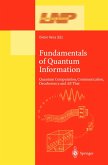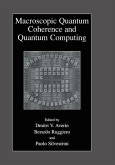In accordance with hardware technologies, currently under development worldwide, telegates represent the fundamental inter-processor operations. Each telegate consists of several tasks: i) entanglement generation and distribution, ii) local operations, and iii) classical communications. Entanglement generation and distribution is an expensive resource, as it is time-consuming. The primary contribution of this thesis lies in the extensive analysis of some complex scenarios of general interest. We propose numerical models that help to identifythe interdependence between computation and communication. With the support of some of the best tools for reasoning -- i.e. network optimization, circuit manipulation, group theory and ZX-calculus -- we lay out new perspectives on the way a distributed quantum computing system should be developed.
Dieser Download kann aus rechtlichen Gründen nur mit Rechnungsadresse in A, B, BG, CY, CZ, D, DK, EW, E, FIN, F, GR, HR, H, IRL, I, LT, L, LR, M, NL, PL, P, R, S, SLO, SK ausgeliefert werden.

